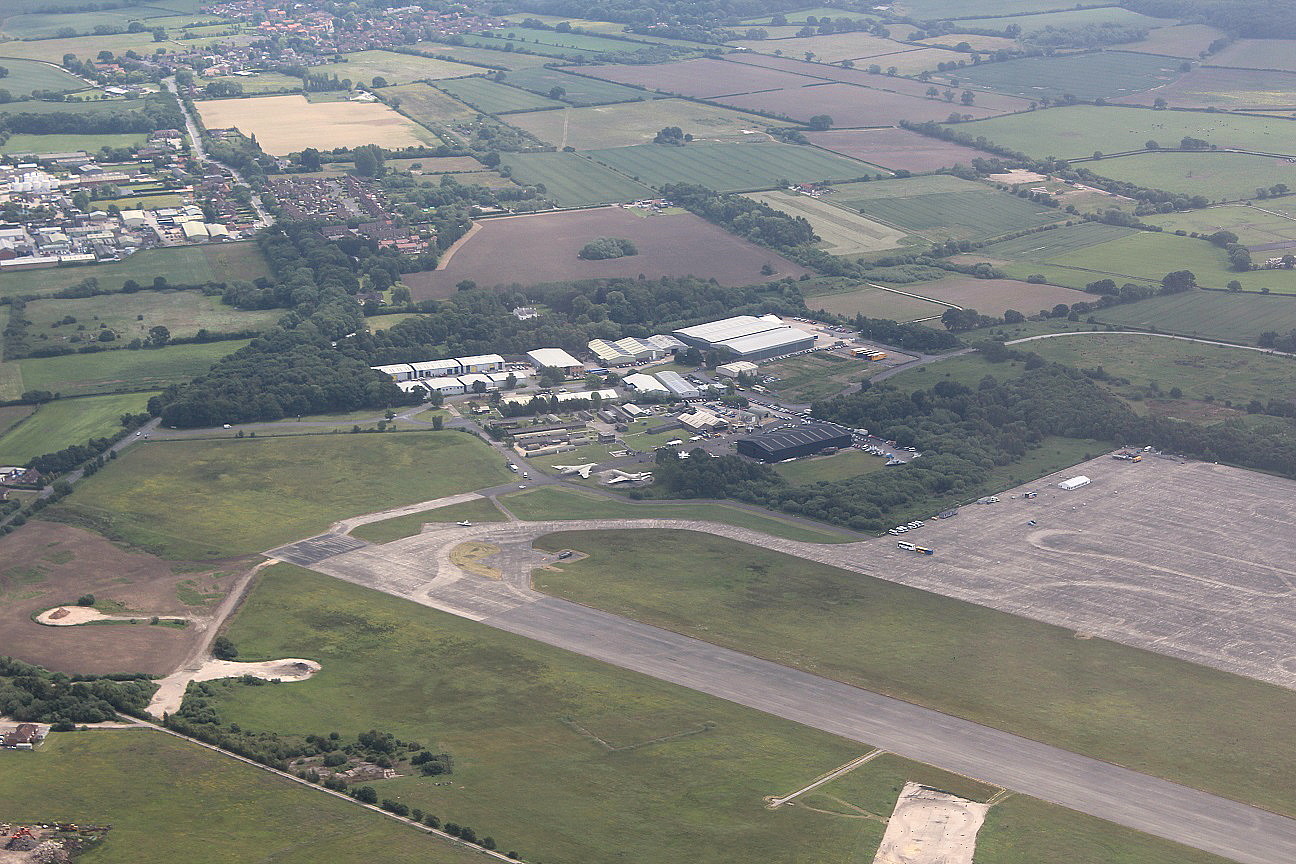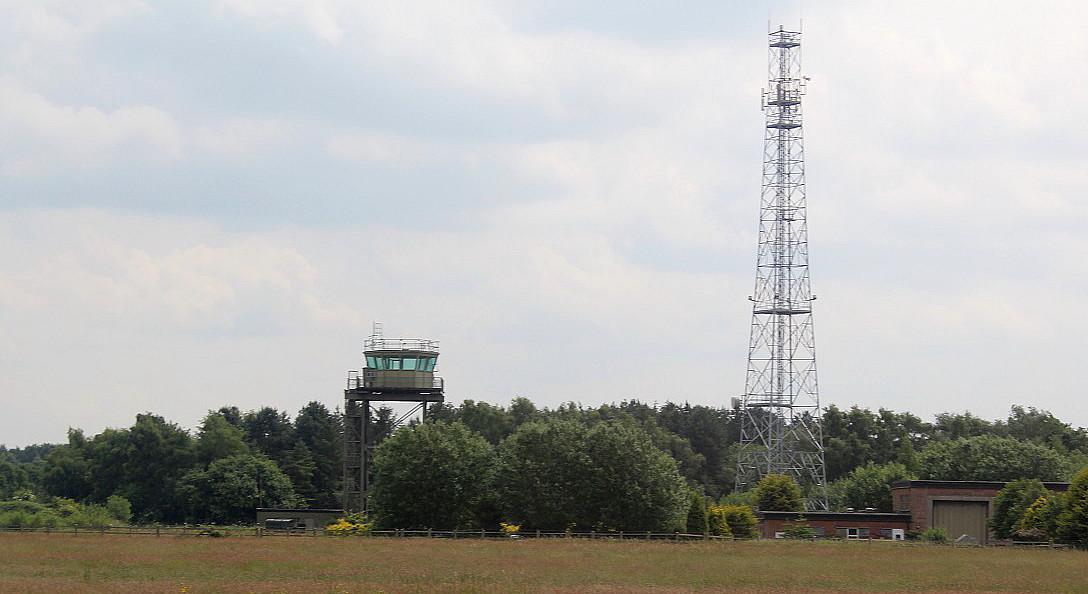Elvington
ELVINGTON: Military aerodrome later civil aerodrome
Note: Pictures by the author unless specified. The third picture is of the control tower, apparently erected for USAF use, but never used.
Military users: WW2: RAF Bomber Command 4 Group
77 Sqdn and 346 & 347 (Free French) Sqdns (Handley Page Halifaxs)
Post WW2:
'V' Bomber dispersal airfield
Charter, air taxi: Post 1945: Air Anglia
Location: W of B1228, 5nm ESE of York
Period of operation: Military 1942 to ? Civil: 1990 to -
Runways: WW2: 02/20 1280x46 hard 08/26 1829x46 hard
14/32 1280x46 hard
Note: Runway 07/25 (08/26) was extended during the 'Cold War' to 3000 metres, and built for the USAF - but it seems they never moved in
1990: 08/26 1612x46 hard
In more recent years ELVINGTON has a 08/26 runway marked out that is 1626 by 23 and often used by flying schools.
NOTES: An examination of the history of 77 Squadron, who were once based here seems to question the seemingly crazy rationale behind RAF thinking regarding how many of their squadrons were organised and developed. Quite often, once a squadron had, by hard operational experience won expertise in one area under one Command, they were then transferred to another area. Why? Being by now very cynical about what was going on in the upper echelons of the RAF and the Air Ministry the only explanation I can offer is that the strategy was very obviously designed to offer every advantage to the enemy? A common theme if the full history of the RAF in WW2 is examined. The history of 77 Squadron seems to prove the point to some extent by being posted from Bomber Command to Coastal Command, back to Bomber Command and then to Transport Command and learning to fly a variety of different multi-engine types, all within a time period of about three years or so.
With 2230 RAF personnel, (378 WAAFs), on station in late 1944 this was obviously a major WW2 bomber station. In 1975 a Satellite for LINTON-on-OUSE.
THE YORKSHIRE AIR MUSEUM
(Please see my article on museums etc for some pictures of the aircraft on display)
For many years home of the Yorkshire Air Museum which really is a credit to all involved and well worth a visit. Please see my article on Aviation museums and Gate Guardians. I was astounded to walk into the hangar to find a Handley Page Halifax on display - just one of two in the world which has survived. Also, when we visited in June 2015, the Handley Page Victor had a generator running to display the aircraft, up and running, as it would have been, on constant readiness during the height of the 'Cold War'. A very nice touch and much appreciated.
We'd love to hear from you, so please scroll down to leave a comment!
Leave a comment ...
Copyright (c) UK Airfield Guide


















